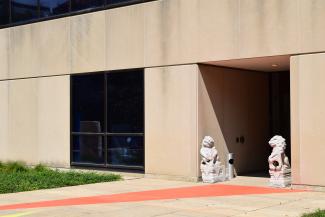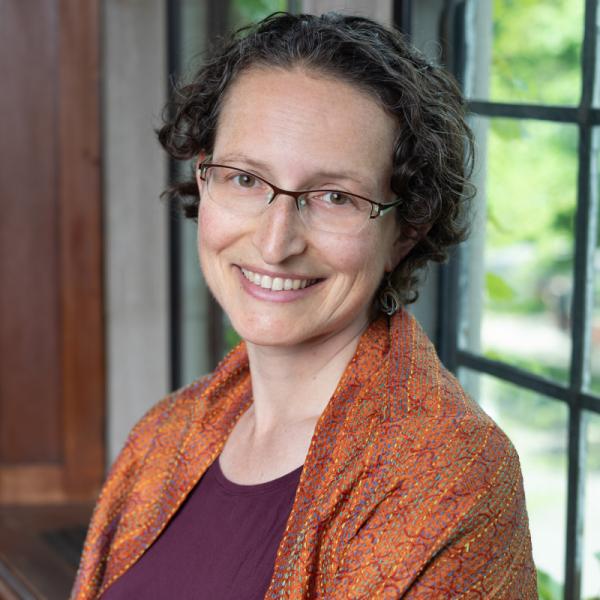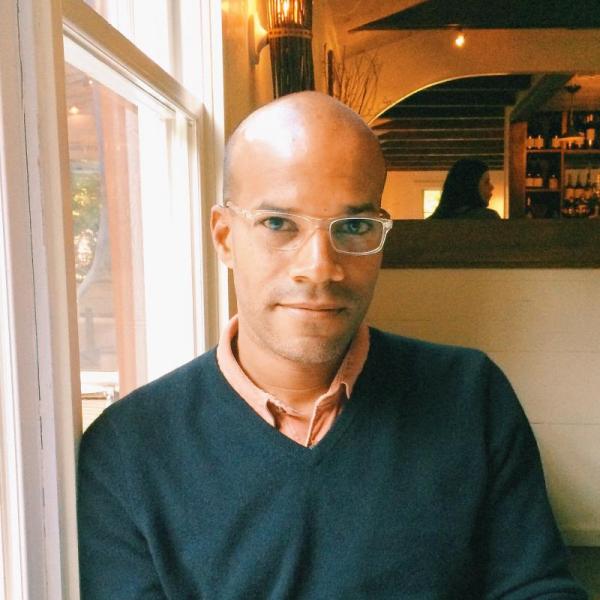
Ranging from ancient architecture to contemporary art and cultural studies, the broad scope of faculty specialization within the Department of Art History exhibits the diversity of approaches and topics that students can explore during their MAPH year. Those who wish to supplement their study in Art History with coursework in other areas often take classes in Cinema and Media Studies, Classics, Comparative Literature, East Asian Languages and Civilizations, English Language and Literature, Near Eastern Languages and Civilizations, Latin American Studies, and Visual Arts.
Selected Faculty
Sample Courses
Introduction to Art, Media, and Technology (ARTH 31315) Autumn 2024
The course gives an introduction to the relationship between art, media, and technology, as articulated in art practice, media theory, and art theory/history. The key focus is the relationship between 20th-century art and so-called "new media" (from photography, film, radio, TV to computers and digital technologies), but older instances of art- and media-historical perspectives will also be discussed. The objective of the course is to give insight into the historical exchanges between art and technological development, as well as critical tools for discussing the concept of the medium and the relationship between art, sensation/perception, visuality, and mediation. The course will also function as an introduction to the fields of media aesthetics and media archaeology. (Ina Blom)
Witchcraft and the Cultural Imagination (ARTH 32266) Winter 2025
This seminar takes as its focal point the vast range of conceptual, material, and visual artifacts that are produced by, and indeed help to construct, this enduring fascination with the figure of the witch, from the medieval past to the present. We will examine case studies from premodern Europe to Colonial North America to Indonesia, scrutinizing texts, films, and works of art. Rather than offering a standard history of witchcraft, we will explore the intersections of gender, labor, and representation that the figure of the witch makes specially available for study. Witchcraft constitutes a multifaceted phenomenon that aims to alter reality and the self through the use of various techniques, transmitted both orally and in writing. These techniques have often appeared culturally marked in terms of gender and belief. Witchcraft has for centuries been the business of women in societies where very few avenues existed for women to develop any sort of business. (Tamara Golan)
Iconoclasm (ARTH 32115) Spring 2025
The recent removal of Confederate statues in the US and ISIL’s destruction of ancient sites in Iraq and Syria, while motivated by different aims, find a common solution in dealing with images deemed inappropriate. Context is crucial to understanding what is at stake in these different iconoclastic acts: What is being destroyed? Who is destroying it and why? Although the term “iconoclasm” was initially used to describe the violent clashes between rival Christian ideologies over the status of images in a religious context in the 8th century, scholars now use it more capaciously and it refers to any movement dedicated to the destruction of images, be it in ancient Mesopotamia, Reformist Europe, or Talibanist Afghanistan. While the term offers syntactical clarity, it simultaneously obscures the various processes that go into practicing iconoclasm. This seminar proposes a broad and historically contingent study of iconoclasm. By looking at a range of examples from different periods and geographical contexts, we will examine the ways in which images have been perceived as threats, aberrations, seductions, or inconveniences best removed. We will also explore the various ways in which removed images continue to resonate with new meanings. (Mohit Manohar)
Spiritual and Protective Lives of Objects in African Art (ARTH 32305) Autumn 2024
This seminar explores visual culture and historical arts of Africa primarily from the nineteenth and early twentieth centuries through a broad geographical range of case studies in practices and uses for art and objects of devotion in everyday life. Investigations will highlight objects’ tangible and intangible elements to examine their spiritual and protective dimensions through various lenses: organized religions, including Islam and Christianity, local belief systems and ritual practices, social or political organizations, and other cultural distinctions. Such contextualization will contribute to students’ recognition of the diversity and historical depth of the continent’s arts and cultures. We will visit objects in local museums and special exhibitions for in-person, close looking and to fuel discussions surrounding the role of museums and museum display and interpretation. (Janet Purdy)
Photography and the Making of Modern Art and Science (ARTH 30337) Autumn 2024
Observation, experimentation, invention, design. How has photography helped to shape these practices, which have been central to the development of both art and science? How might an interdisciplinary approach to the medium of photography invigorate questions of form, abstraction, realism, and subjectivity? This seminar surveys key episodes in the history and theory of photographic media to uncover overlaps, parallels, and moments of exchange across the history of modern art and science. Course readings, presentations, and site visits will offer case studies with which to consider cross-disciplinary connections, from H. Becquerel’s visualizations of radioactivity and E. J. Marey’s chronophotographs charting bodies in motion, to scientific iconography appearing in the photograms of Man Ray and L. Moholy-Nagy or R. Rauschenberg’s use of x-ray imagery. These and many more examples evince how photographic media continually challenges historians of art and of science to reframe the methodological tools they use to evaluate visual and material artifacts. Students will have the opportunity to study and write about photographs in campus collections. (Talia Shabtay)
Approaches to Art History (ARTH 39800) Multiple offerings - required for MAPH students focusing on art history
This seminar examines a range of methods for doing the work of art history with an eye toward strengthening your own original contributions to the field. Through close reading and discussion of recently published scholarship, we will interrogate how art historians generate novel ways of seeing and understanding the objects that they study. This course will be structured around the framework of scale. What is the scale of art historical analysis? Moving from macro to micro, we will traverse units ranging from canons, empire, and environments to art scenes, institutions, and audiences, to the artist, the art object, and the fragment. We will examine how scholars constitute the objects of their criticism, the breadth and explanatory force of their arguments, and the ethics of their endeavors. This approach traverses perspectives from feminism and queer theory, post- and decolonial thought, Black studies, material culture, social history, and critical theory.
For an extended listing of classes and descriptions, visit the Art History course page.
Art History Specialization
The Art History Specialization allows students to structure their coursework and thesis around the study of Art History within MAPH. Students who complete the following requirements will receive an Art History notation on their transcript:
- MAPH Core Course (Foundations of Interpretive Theory)
- ARTH 39800: Approaches to Art History
- Enrollment in 3 additional graduate-level courses with an ARTH course number
- Thesis, creative or traditional, should be approved by one of the preceptors, or the Art History MAPH coordinator
Please direct any questions you may have about specializing in Art History to maph-support@uchicago.edu.
Curatorial Studies
Art history students may also be interested in the Curatorial Studies Specialization, which allows MAPH students to focus specifically on the object-driven research and skills that are central to the discipline of Art History as well as to professional or scholarly careers in museums, collections, and exhibition spaces.
Recent Art History Thesis Projects
“Fire Drilling at the Lower Temple of the Jaguars, Chichen Itza”
Michel Brun, MAPH ’25
Advisor: Claudia Brittenham
“Picturing the Self: Vernacular Photography Under Mao”
Peng Liu, MAPH ‘25
Advisor: Wei-Cheng Lin
"Eva Hesse's Hang Up as Relational Form"
Yves Cao, MAPH '24
Advisor: Erica Warren
"Sound as It Ought to Be Seen: Looking at Sound Art Again through Christine Sun Kim"
Christian Bumala, MAPH '24
Advisor: Christine Mehring
"Reframing Trance and Dance in Bali"
Luh Natalia Granquist, MAPH '24
Advisor: Carl Fuldner



